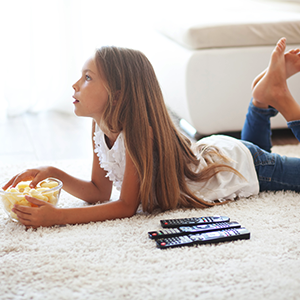Giving kids the responsibility to stay home alone can be a positive and
confidence-building experience, a rite of passage. All parents reach the
point when they are faced with making a decision as to whether their child
is ready to stay home alone. How do you know he or she is ready? Children must
have the skills and maturity to handle being on their own safely.
There is no magical age that determines when a child is ready to be home
alone, but a kid who is ready shows the following signs:
-
Desires to stay home alone and is not fearful of being alone in the
home -
Exhibits good decision-making skills
-
Shows that he is aware of others and his surroundings
-
Proves herself to be responsible and trustworthy
-
Knows home address and phone number, as well as how to get in touch
with parents -
Can make a snack for himself or herself
-
Knows how to use a phone and dial 911 or call a neighbor for help
-
Follows simple rules and instructions
-
Knows basic first aid
Leaving kids home alone for the first time is a big step. Even if kids are
not planning to babysit, consider enrolling them in a babysitting class,
because the skills taught there can be very useful for kids who are
beginning to stay home alone. If you believe your child is ready, how can
you prepare them for success?
-
Go over the rules: Are friends allowed to come over? Is the child
allowed to leave the house? Are there cable channels the child is
not permitted to watch? Go over these and any other family rules
and make it clear that your child understands. -
Discuss possible situations: If someone comes to the door, what is
the child to do? If the phone rings, is the child to answer? How
will they respond if someone asks to speak to the parent? “She is
busy right now. Can I take a message?” is a good response. -
Kitchen safety: Make sure the child knows how to use kitchen
appliances and tools and discuss what they are allowed to make in
the kitchen. Only cold snacks? Can they use the microwave? -
Emergency preparedness: Does your child know what to do in case of
smoke or a fire? What should he do if there are severe storms? Does
she know basic first aid? Post emergency phone numbers and contact
information so your child has them in case of an emergency. Discuss
who to contact if you are unreachable (a neighbor, family member or
friend). -
Create a list of “Dos” and “Don’ts”: Don’t play with matches or
lighters. Don’t let anyone in the house. Don’t leave the house,
except in an emergency situation. Do call and check in when you get
home from school. Do work on homework and chores. Each family is
different and will have its own list of what is expected. -
Role play: Act out different scenarios that may arise. Pretend that
the child needs to reach you, what will they do? How would they
call 911? What would they do in case of a fire? Pretend the phone
rings, how will they answer? By walking through different
situations, kids will be better prepared if the unexpected happens. -
Start slow: Begin by leaving the child for 15-30 minutes at a time
and slowly increase. Talk about any questions or problems that may
have arisen. Ask your child about their feelings when home alone.
If the child is fearful, they may not be ready to be on their own.

